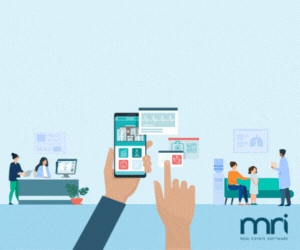The Coronavirus pandemic will leave a lasting legacy across all sectors, including public services, business, industry and hospitality. It is already changing and shaping the way millions of people around the world live their lives, through the need for social distancing, which is encouraging more and more people to use modern technology that in the past they may have shunned.
The NHS has historically been a slow adopter, but Coronavirus has forced the increased use of virtual technologies such as video consulting, online conferencing and electronic/digital services. The Coronavirus response has fast-tracked processes and decisions that would normally take many months - or even years - to introduce under normal circumstances. When the NHS emerges from the other end of this crisis, it will look very different to the health service that went into it.
Recent research carried out by nfpSynergy reports that 38% of people have increased their use of NHS technology during the pandemic so far across a number of platforms.
Microsoft Teams was recently made available to NHS organisations for free (for a limited time period) to counter the increased risks associated with COVID-19. NHS Digital finished rolling out the messaging tool to all NHSmail users on March 20, and between March 22 and 28 it was used to facilitate 973,072 private online chats – rising from 6,804 on March 22 to a peak of 243,927 on March 26.
During the same seven-day period, it also facilitated 66,736 team online chats, 76,173 private calls and 68,365 team calls. This equates to around 28,148 unique users per day - starting with 4,812 on March 22 and peaking at 44,885 on March 27.
Some of the NHS technologies seeing the biggest increases are:
• The NHS website (www.nhs.uk) usually attracts around 30 million visits a month, but in March, numbers increased to 61,311,711 - a record high
• Registrations to use the NHS App increased by 111% in March compared with February, with the number of repeat prescription requests made via the app increasing by 97%
• Triage software, NHS Pathways was responsible for triaging 1,624,258 calls to 111 and 999 in March - a 12.2% increase on the same month last year
• NHS 111 used to average 10,000 users every day, but in March the daily average increased to 548,245
• The number of NHS login accounts increased by 45% in March compared with February
• Pharmacies report an increase of over 1.25 million Electronic Prescribing Service nominations in the four-week period from February 28 to March 27.
Ben Davison NHS Digital’s Executive Director for Product Development says: “These are unprecedented times and with social distancing now the norm for everyone, we’re really starting to see digital technologies come to the fore - not just in the NHS but in all walks of life.
“Good technology is making it possible for doctors, nurses and other health professionals to continue to deliver care remotely where possible and freeing up time for those patients who need face-to-face care. It’s keeping people well whilst they are isolated with good information and advice and the ability to manage things like prescriptions remotely.
“We’re fully prepared for the numbers using NHS tech to continue increasing over the coming days and weeks, as the general public continue to play a key role in helping to ease the burden on our fantastic frontline services.”
The digital hospital of the future may be closer than it appeared just a few months ago.
Related stories
Smart hospitals top priority for investment in next five years











